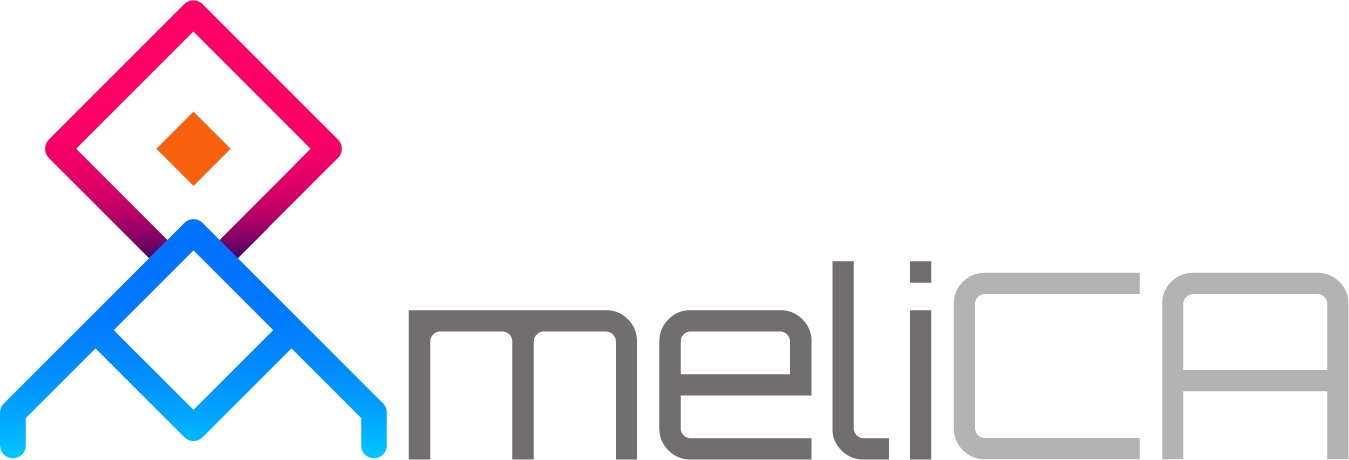Respetar la diversidad cultural en la ética aplicada a la Inteligencia Artificial : un nuevo enfoque para un gobierno multicultural
Respecting cultural diversity in ethics applied to AI : a new approach for a multicultural governance
DERECHOS RESERVADOS DE AUTOR
Todo documento incluido en la revista puede ser reproducido total o parcialmente, siempre y cuando se respete su contenido original, se cite la fuente y se use con fines académicos no comerciales. Misión Jurídica y su contenido se encuentra protegido bajo una Licencia Creative Commons Atribución-NoComercial-SinDerivar 4.0 Internacional.

Misión Jurídica por Misión Jurídica se distribuye bajo una Licencia Creative Commons Atribución-NoComercial-SinDerivar 4.0 Internacional.
Basada en una obra en http://unicolmayor.edu.co/publicaciones/index.php/mjuridica/index.
Permisos que vayan más allá de lo cubierto por esta licencia pueden encontrarse en http://unicolmayor.edu.co/publicaciones/index.php/mjuridica/index.
Mostrar biografía de los autores
La Inteligencia Artificial parece ser una parte de nuestra vida diaria. Para algunos representa la promesa de un mundo mejor y muchas mejoras que serían beneficiosas para la humanidad. Para otros, la IA es vista amenaza, si no como un peligro existencial que necesita ser estrictamente controlado. Cualquiera sea la postura, la necesidad de regular la IA actualmente está ampliamente reconocida. Con pocos instrumentos legales que ofrezcan un marco específico para el desarrollo y uso de la IA, se ha acudido a la ética para establecer estándares y establecer límites. No obstante, el número de documentos que hacen referencia a los estándares éticos para la IA ha aumentado exponencialmente hasta alcanzar un punto donde es difícil saber cómo utilizarlo de manera eficiente. Estos documentos en su mayoría se han publicado para promocionar intereses particulares y el establecimiento de un código universal de ética para IA ha sido contemplada como una solución para el gobierno mundial IA. Si se necesita un sistema de gobernanza mundial para evitar un resultado negativo de la IA, es aparente que la idea de un código de ética universal niega la diversidad puntos de vista éticos que se basan en las diferentes culturas filosóficas que componen al mundo. En lugar de ofrecer una herramienta legítima y eficiente, una solución de este tipo podría terminar en tensiones culturales entre los actores principales en el campo de la IA como es el caso de China y Estados Unidos. Para evitar situaciones conflictivas derivadas de la negación de la diversidad cultural es más necesario que nunca dejar a un lado la idea de un código ético universal de IA y comenzar a pensar acerca de un nuevo sistema de gobernanza que respete la variedad de perspectivas éticas.
Visitas del artículo 325 | Visitas PDF 267
Descargas
- Jobin, Anna, Ienca, Marcello and Vayena, Effy. “The Global Landscape of AI Ethics Guidelines.” Nature Machine Intelligence 1.9 (2019): 389-99.
- Zeng, Yi, Lu, Enmeng, and Huangfu, Cunqing. “Linking Artificial Intelligence Principles.” CEUR Workshop Proceedings 2301, paper 15 (2019).
- Jelinek, Thorsten. “The Future Rulers? On Artificial Intelligence Ethics and
- Governance.” In Billows W. and Körber S. Reset Europe: Time For Culture To Give Europe New Momentum. Institut für Auslandsbeziehungen (2020): 244-252.
- OECD. Recommendation of the Council on Artificial Intelligence. OECD Legal Instrument 0449 (2021). Available at
- UNESCO. Preliminary report on the first draft of the Recommendation on the Ethics of Artificial Intelligence. (2020). Available at https://events.unesco.org/event?id=515530304
- HLEGAI - High-Level Expert Group on Artificial Intelligence. Ethics guidelines for Trustworthy AI. European Commission (2019). Available at file:///D:/Publications/En%20cours/ICSSD/ai_hleg_ethics_guidelines_for_trustworthy_ ai-en_87F84A41-A6E8-F38C-BFF661481B40077B_60419.pdf
- G20. Ministerial Statement on Trade and Digital Economy. Tsukuba City, Japan, 8-9 June 2019. Available at https://www.mofa.go.jp/files/000486596.pdf
- CAHAI - Ad hoc Committee on Artificial Intelligence. “Towards regulation of AI systems: Global perspectives on the development of a legal framework on Artificial Intelligence (AI) systems based on the Council of Europe’s standards on human rights, democracy and the rule of law.” Council of Europe (2020). Available at https://rm.coe.int/prems-107320-gbr-2018-compli-cahai-couv-texte-a4-bat-web/1680a0c17a
- Bielby, Jared. “Comparative philosophies in intercultural information ethics.”
- Confluence: Online Journal of World Philosophies 2 (2015): 233-253.
- IEEE. Ethically Aligned Design First Edition: Prioritizing Human Wellbeing with Autonomous and Intelligent Systems. Institute of Electrical and Electronics Engineers (2019). https://standards.ieee.org/content/dam/ieee-standards/standards/web/documents/other/ead1e.pdf?utm_medium=undefined&utm_source=undefined&utm_campaign=undefined&utm_content=undefined&utm_term=und efined
- European Commission. Proposal for a Regulation of the European Parliament and of the Council, laying down harmonised rules on artificial intelligence (artificial intelligence act) and amending certain union legislative acts. COM(2021) 206 final, 2021/0106(COD). Brussels (2021). Available at https://eur-lex.europa.eu/legal-content/EN/TXT/HTML/?uri=CELEX:52021PC0206&from=EN
- Aristotle. History of Animals. Translated by D’Arcy Wentworth Thompson. The Internet Classics Archive (2000). Available at http://classics.mit.edu/Aristotle/history_anim.html
- Lovejoy, Arthur O. The Great Chain of Being: A Study of the History of an Idea. Harvard University Press (1964).
- Heidegger, Martin. The Question Concerning Technology.1958.
- Simondon, Gilbert. On the Mode of Existence of Technical Objects. Translated form French by Cécile Malaspina and John Rogove. Univocal Publishing (2017) [1958].
- Feenberg, Andrew. Transforming Technology: A Critical Theory Revisited. Oxford University Press (2002).
- Evans, Lewis. The Satires of Juvenal, Persius, Sulpici, and Luculius. Henry G. Bohn (1860).
- Goffi, Emmanuel R. “Escaping the Western Cosm-Ethical Hegemony: The Importance of Cultural Diversity in the Ethical Assessment of Artificial Intelligence.” AI Ethics Journal 2(2)-1 (2021).
- Auernhammer, Jan. “Human-centered AI: The role of Human-centered Design Research in the development of AI.” In Boess, S., Cheung, M., and Cain, R. (eds.). Synergy - DRS International Conference 2020, (2020). Available at https://dl.designresearchsociety.org/drs-conference-papers/drs2020/researchpapers/89/
- Hagendorf, Thilo. “The Ethics of AI Ethics: An Evaluation of Guidelines.” Minds and Machines 30 (2020): 99-120. Available at https://link.springer.com/content/pdf/10.1007/s11023-020-09517-8.pdf
- Greene, Daniel, Hoffmann, Anna Lauren, and Stark, Luke. “Better, Nicer, Clearer, Fairer: A Critical Assessment of the Movement for Ethical Artificial Intelligence and Machine Learning.” HICSS (2019).
- Fjeld, Jessica, Achten, Nele, Hilligoss, Hannah, Nagy, Adam, Adam, and Srikumar, Madhulika. “Principled Artificial Intelligence: Mapping Consensus in Ethical and Rights- Based Approaches to Principles for AI.” Berkman Klein Center Research Publication, 2020.1 (2020).
- United Nations. Universal Declaration of Human Rights. United Nations General Assembly, Paris (1948). Available at https://www.un.org/en/ga/search/view_doc.asp?symbol=A/RES/217(III)
- UNDP. Human Development Report. Oxford Oxford University Press (1994). Available at http://hdr.undp.org/sites/default/files/reports/255/hdr_1994_en_complete_nostats.pdf
















